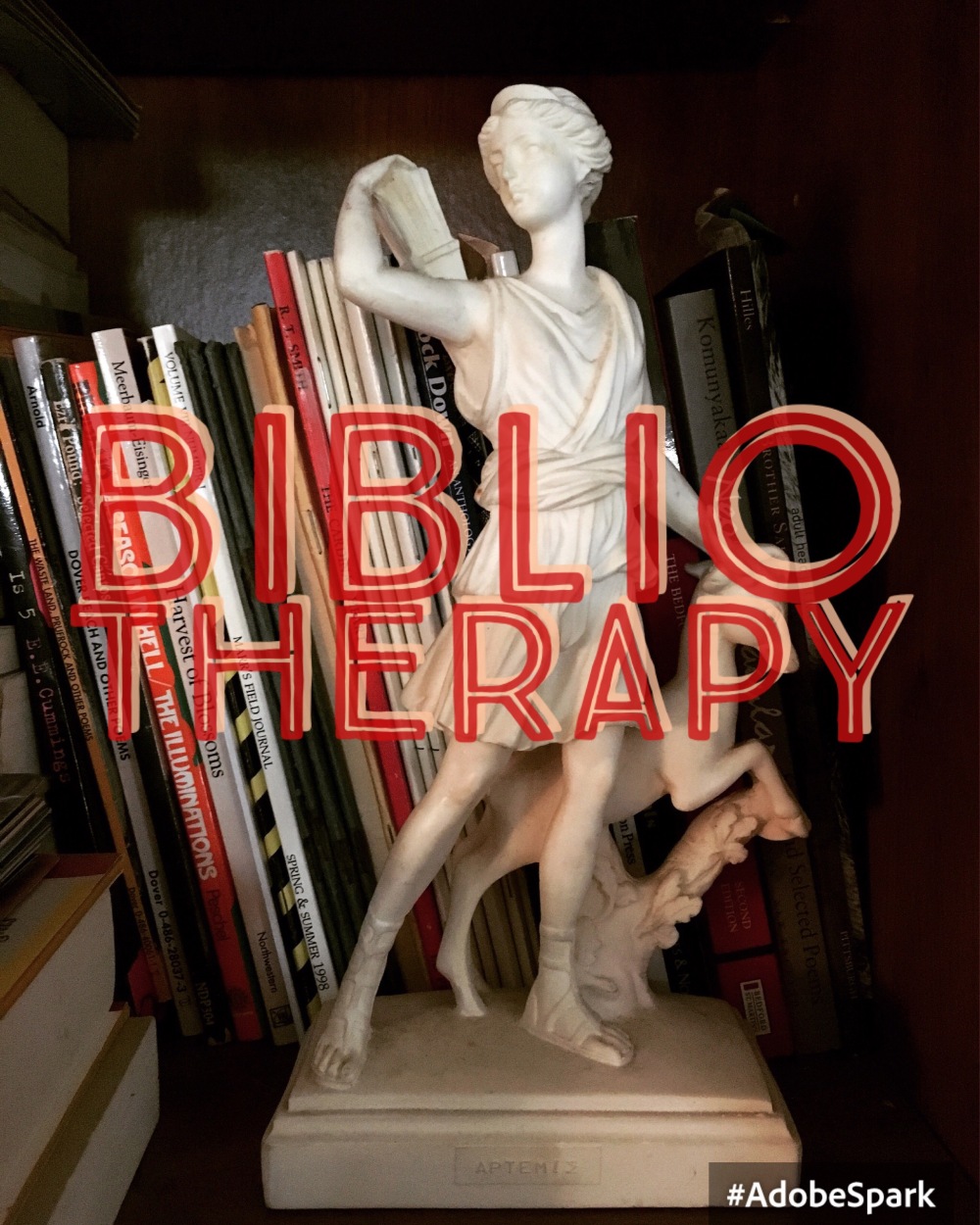
Breaking down what we know about bibliotherapy:
Bibliotherapy is an interactive process (Hynes & Hynes-Berry, 1994).
More than readers’ advisory, Bibliotherapy analyzes how the text read makes the individuals feel, what emotions and memories it elicits, and why it speaks to them. It is good to have a trained counselor or social worker present for these discussions, to be able to interact responsibly and purposefully to the individuals and recognize the insight to their responses.
Literature is defined in the broadest sense (Hynes & Hynes-Berry, 1994).
More than just books and poetry, bibliotherapeutic materials are considered art with language. Films, plays, recordings, anything involving language can be used for bibliotherapy. Also, when dealing with gifted students (or anyone really) they can be multi-modal learners, and if you present an idea or emotion in several different mediums, it might make a lasting impact by varying how they process it.
The process takes place in both clinical and developmental bibliotherapy (Hynes & Hynes-Berry, 1994).
For our purposes here, we are using the developmental bibliotherapy path. But for your knowledge, it is used in nursing homes, mental health facilities, prisons, hospitals, schools, and in our case, public libraries.
The practice of bibliotherapy may take place as one-on-one or in a group setting (Hynes & Hynes-Berry, 1994).
In a public library, we can use this therapy in both ways. Book clubs, book talks, and homeschool meeting groups can use bibliotherapy in a mass setting. For individuals, a librarian can sit down with a patron and talk to them about the text. Or, in a simplified and “fast food” version of bibliotherapy, create a feelings box that organizes books by emotions or circumstances, and on the back of the card, have a number of questions the patrons can ask of themselves after reading it. This is not supervised, but it is a start, getting kids to think about what they read in terms of emotionality, and urging them to think beyond the parameters of the story.
The results of effective bibliotherapy are improved self-esteem, and assimilation of appropriate psychological or social values into the participants’ character and behavior (Hynes & Hynes-Berry, 1994).
Showing individuals examples of how they should be, or could be, or perhaps simply showing an example of someone dealing with a similar issue of their own gives them insight into how they can deal with their current set of circumstances. It doesn’t have to be explained out in the text in a self-help manner, but it mirrors their lives and brings about acknowledgement within themselves, making them think of how they have reacted in the past, and how they should react in the future. It causes self-assessment, even slightly, by bringing similar circumstances to the forefront and making them valid.
Bibliotherapy is a therapy, but part of its unique effectiveness lies in its use of literature as the primary tool; in this way, bibliotherapy makes a special appeal to the healthy aspects of the mind, for both developmental and clinical participants. (Hynes & Hynes-Berry, 1994).
Reading is a powerful thing. It is meditative at its very core, and adding a layer of therapy/discussion to it makes it even more powerful. Getting the literature to the participants, and relevant literature, is important. It awakens the brain. It gives insight. It gives a self-esteem boost because it shows that the individuals are not alone. Their voices are heard and translated into story.
The effectiveness of bibliotherapy depends on the facilitator’s ability to choose material that speaks to the individual participants’ needs and interests; to make accurate, empathetic interpretations of the participants’ responses and through literature and dialogue, to draw out a deeper self-understanding. In short, a good bibliotherapist is a skilled listener (Hynes & Hynes-Berry, 1994).
All of it matters – the material, the insight into their responses, and listening. It is a very delicate balance, but an achievable one which will provide insight to aid the individuals in getting to know themselves. In a group setting, they will see it exists in others, and at the very least, they have empowered themselves by reading and thinking about material.